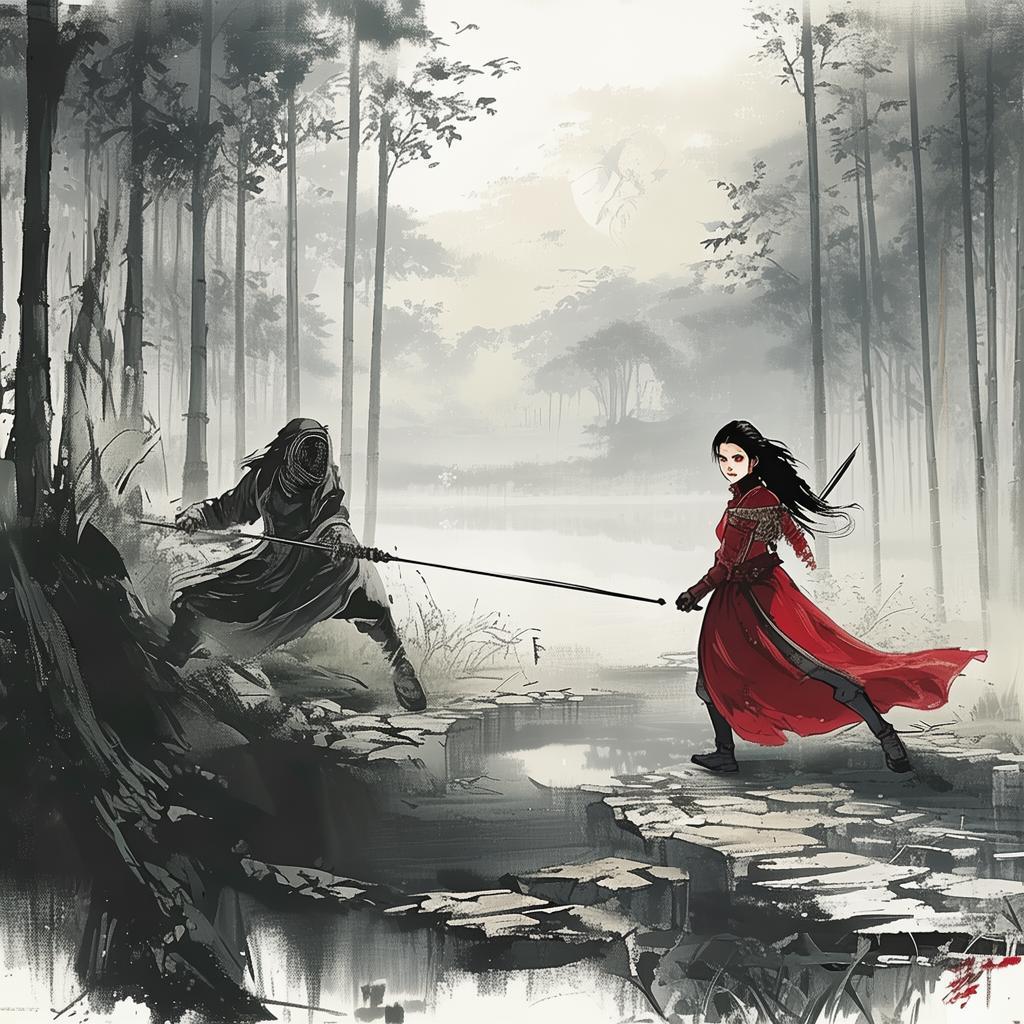The Sword of the Salesman: A Martial Tale of Advertising's Iron Fist
In the bustling metropolis of Adenville, where neon signs flickered like so many swords, there lived a man known as the Sword of the Salesman. His name was Lin, a former warrior whose swordplay was as swift and decisive as his sales pitches. In Adenville, where the art of persuasion was as revered as the ancient martial arts, Lin was a legend. He had mastered the delicate balance between brute force and the subtlety of the mind, turning every client into a loyal follower.
One fateful morning, Lin was summoned to the grandest of advertising agencies, The Iron Fist. The agency was known for its ruthless tactics and its unyielding drive for success. Its founder, Master Wu, was a man who believed in the martial art of advertising—where every campaign was a battle, and every client a rival.
Master Wu, a man with a piercing gaze and a cold smile, introduced Lin to his latest challenge. The Iron Fist had been tasked with selling a new line of washing machines to the city's middle class, a demographic that was as elusive as a shadow in the moonlight. The campaign had to be perfect, and Lin was to be the architect of its success.
Lin knew that this was not just another sale; it was a test of his skills. He had to craft a narrative that would resonate with the hearts and minds of the city's inhabitants. It was a challenge that required not only his martial prowess but also his mastery of the ancient art of storytelling.
The first step was to understand his opponent—the middle class of Adenville. Lin spent days in the marketplaces, observing the daily lives of the citizens. He saw their struggles, their hopes, and their dreams. He learned of their love for their families, their desire for a better life, and their fear of falling behind in this competitive world.
With this knowledge, Lin began to weave his tale. He created a character, a young couple, struggling to make ends meet but determined to give their child the best life possible. The washing machine, he said, was not just a machine—it was a symbol of their love and dedication to their family.
As the campaign launched, Lin's storytelling began to take shape. The city was captivated by the story of the young couple. They laughed with them, cried with them, and rooted for them. The washing machine was no longer just a product—it was a symbol of hope and love.
But Master Wu was not satisfied. He saw the power of Lin's storytelling but knew that Adenville's middle class was a tough nut to crack. He demanded more—more drama, more tension, and more heartbreak. Lin, feeling the weight of the challenge, delved deeper into the hearts of the people, searching for the next layer of truth.
He discovered a hidden story, one that the middle class was too afraid to speak of. They were afraid of losing their jobs, of their children not being able to attend the best schools, of not being able to afford the latest gadgets. Lin decided to incorporate this fear into his narrative, but in a way that would inspire hope rather than despair.
As the campaign progressed, Lin's storytelling grew more intricate. He introduced a new character, a wise old man who taught the young couple that true happiness was not measured by material possessions but by the love and support of those around them. The washing machine became a symbol of this love and support.

The climax of the campaign came when the young couple faced their darkest hour. They were about to lose everything, and the washing machine was the only thing standing between them and despair. But Lin's storytelling had worked its magic. The city was united in their support, and the young couple, with the help of the washing machine, overcame their struggles.
The final scene of the campaign showed the young couple hugging their child, their faces alight with joy and hope. The washing machine, now a cherished symbol of their journey, stood in the background, a silent witness to their triumph.
Master Wu, who had been a cold observer throughout the campaign, watched as the city erupted in applause. He knew that Lin had not just sold a washing machine; he had sold a story that touched the hearts of many. The Iron Fist had won the campaign, but it was Lin's storytelling that had truly won the hearts of Adenville.
In the end, Lin learned that the art of advertising was not just about selling products; it was about selling dreams. And like a master martial artist, he had used his skills to create a narrative that would resonate for generations.
The Sword of the Salesman had not just survived the battle; he had emerged as a hero. And in the world of advertising, that was the highest praise of all.
✨ Original Statement ✨
All articles published on this website (including but not limited to text, images, videos, and other content) are original or authorized for reposting and are protected by relevant laws. Without the explicit written permission of this website, no individual or organization may copy, modify, repost, or use the content for commercial purposes.
If you need to quote or cooperate, please contact this site for authorization. We reserve the right to pursue legal responsibility for any unauthorized use.
Hereby declared.









